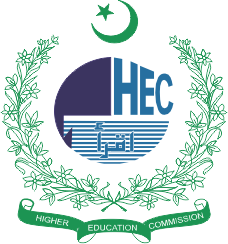Aftermath of War on Terror in Afghanistan: Choices between Chaos and Sustainable Peace
DOI:
https://doi.org/10.55737/trt/SG25.093Keywords:
Afghan Taliban, Political Rights, Humanitarian Rights, International Politics, War on Terror, North Atlantic Treaty Organization (NATO)Abstract
On August 15, 2021, the war on terror, which had prolonged for two decades, was concluded as the Afghan Taliban took control of Kabul, the capital of Afghanistan. The war on terror is perhaps regarded as one of the most controversial wars, strategically and politically defined during the 21st century. What deed was done in these twenty years is now history, but now the region has come up with a more significant concern. The concern of humanitarian crisis, the concern of political trust in Taliban leadership, and the concern of sustainable peace are some of the highlights that stakeholders seemed to be worried about. During the recent 17th Extraordinary conference of the Organization of Islamic Cooperation, the Secretary-General of the United Nations identified that Afghanistan today faces a humanitarian crisis. The stakeholders must take a serious note of the issue, or the region will face the highest catastrophe of the century. Will there be any peace and sustainability in Afghanistan? Would the Taliban be able to secure their trust among the public? What would be the future of the political scenario in the state? This paper tends to analyze the facts of the contemporary politics of Afghanistan. Moreover, this paper will try to identify the outcomes in terms of regional and state-level concerns while the Taliban holds the center throne. A historical overview and brief contrast of the War on Terror will be provided to understand the topic better. This paper will also evaluate the future aspect of political domains in Afghanistan.
References
AlJazeera. (2021). ‘Afghanistan heading for chaos unless action taken immediately.’ Al Jazeera. https://www.aljazeera.com/news/2021/12/19/oic-nations-pledge-fund-to-prevent-afghanistan-economic-collapse
Amnesty International. (2024). Afghanistan: Gender Apartheid Policies. Amnesty.org.
Barfield, T. (2022). Afghanistan: A Cultural and Political History. Princeton University Press.
BBC. (2021, September 5). Afghanistan: “Everyone got it wrong” on Taliban takeover - armed forces chief. BBC News. https://www.bbc.com/news/uk-58453258
Berkley Forum. (2021). Islam, Politics, and the Future of Afghanistan. https://berkleycenter.georgetown.edu/posts/islam-politics-and-the-future-of-afghanistan
Borthakur, A., & Kotokey, A. (2020). ETHNICITY OR RELIGION? THE GENESIS OF THE TALIBAN MOVEMENT IN AFGHANISTAN. Asian Affairs, 51(4), 817–837. https://doi.org/10.1080/03068374.2020.1832772
Brown, F. Z. (2021, November 8). Aiding Afghan Local Governance: What Went Wrong? Carnegie Endowment for International Peace. https://carnegieendowment.org/2021/11/08/aiding-afghan-local-governance-what-went-wrong-pub-85719
Byrd, W. (2021, September 7). After Taliban Takeover, Can Afghanistan’s Economy Survive? United States Institute of Peace. https://www.usip.org/publications/2021/09/after-taliban-takeover-can-afghanistans-economy-survive
Gohel, S. M. (2023). Doctor, Teacher, Terrorist: The Life and Legacy of Al-Qaeda Leader Ayman Al-Zawahiri. Oxford University Press.
Human Rights Watch. (2023). Afghanistan’s Rights Crisis: The Impact of Taliban Rule. HRW.org.
ICTJ. (2024). What Does the Future Hold for Afghanistan? | International Center for Transitional Justice. https://www.ictj.org/latest-news/what-does-future-hold-afghanistan
International Monetary Fund (IMF). (2023). Afghanistan Economic Outlook. IMF.org.
ISSI Web Administrator. (2021, July 29). PRESS RELEASE – Panel Discussion “Conversations on the Afghan Peace Process: Qatar’s Role in Afghanistan” | Institute of Strategic Studies Islamabad. Issi.org.pk. https://issi.org.pk/press-release-panel-discussion-conversations-on-the-afghan-peace-process-qatars-role-in-afghanistan/
Jonegård, I. G. (2019). The implications of a US withdrawal from Afghanistan Four scenarios. Swedish Defence Research Institute. https://www.foi.se/
Khaama Press. (2023). Administrative Challenges in Afghanistan Under the Taliban. Khaama.com.
Mallapaty, S. (2022). Afghanistan’s academics despair months after Taliban takeover. Nature, 601(7891), 11–12. https://doi.org/10.1038/d41586-021-03774-y
McNeese, T. (2021). 9/11: The Attacks on the World Trade Center and the Pentagon. Infobase Holdings, Inc.
Reporters Without Borders. (2023). Media Under Siege in Afghanistan. RSF.org.
Ruby, F. (2020). Silent partners: US bases in Australia. Australian Foreign Affairs, (8), 29–53. https://search.informit.org/doi/10.3316/informit.971976017063670
Statista. (2021). Topic: Current political situation of Afghanistan 2021. Statista. https://www.statista.com/topics/8320/current-political-situation-of-afghanistan-2021/
UN. (2021). Millions of Lives Will Depend on How Afghanistan’s New Interim Government Chooses to Govern, Special Representative Tells Security Council | UN Press. Press.un.org. https://press.un.org/en/2021/sc14628.doc.htm
UNDP. (2023). Governance for people and planet | United Nations Development Programme. https://www.undp.org/governance
United Nations High Commissioner for Refugees (UNHCR). (2023). Afghanistan: Humanitarian Needs Assessment. UNHCR.org.
United Nations Office for the Coordination of Humanitarian Affairs (UNOCHA). (2023). Afghanistan: Humanitarian Response Plan 2023-2024. UNOCHA.org.
United Nations Security Council. (2023). Sanctions on Afghanistan’s Taliban Leadership. UN.org.
USAID. (2023, May 9). Democracy, Gender & Human Rights | Afghanistan. U.S. Agency for International Development. https://www.usaid.gov/afghanistan/our-work/democracy-and-governance
World Bank. (2023). Afghanistan Economic Update: Fall 2023. WorldBank.org.)
WFP. (2022). Afghanistan Emergency | World Food Programme. https://www.wfp.org/support-us/stories/families-afghanistan-need-help
Downloads
Published
Issue
Section
License
Copyright (c) 2025 Abbas Niaz, Dr. Muhammad Umer Hayat, Dr. Syed Aleem Gillani

This work is licensed under a Creative Commons Attribution-NonCommercial 4.0 International License.





